![]()
PRESS RELEASE – Issued by AC Immune
- Studies AC Immune’s ACI-24, the first anti-amyloid vaccine for treatment of Alzheimer’s disease-like characteristics in people with Down syndrome
- Clinical Study is done in collaboration with University of California San Diego
- US NIH provides significant funding with an additional grant from the LuMind Research Down Syndrome Foundation
- Alzheimer’s disease-like characteristics develop in virtually all people with Down syndrome over age 40; majority develops associated dementia over
age 60
Lausanne, Switzerland, San Diego, CA and Marlborough, MA USA – January 7, 2016 – Today plans were announced to conduct the world’s first clinical trial for a vaccine targeting Alzheimer’s disease-like characteristics in those with Down syndrome. The study will test AC Immune’s vaccine ACI-24 and is being conducted in collaboration with the University of California, San Diego (UC San Diego) Down Syndrome Research and Treatment Center. Funding is provided by a significant grant from the US National Institutes of Health (NIH) and an additional grant from the LuMind Research Down Syndrome Foundation. This is the first public/private collaboration for a clinical trial in the field of Down syndrome.
Individuals with Down syndrome (DS) have an extra copy of chromosome 21 which carries the gene for APP encoding the precursor protein of Abeta, one of the hallmarks of Alzheimer’s disease (AD). An important consequence is that individuals with DS develop AD-like characteristics at a rate three to five times greater than that of the general population and at a much younger age. Further, AD-like characteristics develop in more than 98% of people with DS over age 40 with up to 80% developing associated dementia over the age of 60. It is estimated that there are 6 million people with DS worldwide, with 400,000 in the United States.
Trial participants will be adults with DS. The objectives of the trial include studying safety and tolerability of ACI-24, its effect on induction of antibodies against Abeta, clinical and cognitive measures in adults with DS and its effect on biomarkers of AD-like pathology in DS. Participants in the study will be treated for 12 months, with 12 months follow up.
Prof. Andrea Pfeifer, CEO of AC Immune said: “We are very pleased to bring this potentially disease modifying treatment for Alzheimer’s disease into the vulnerable, genetically predisposed Down syndrome population. The combined knowledge and resources of AC Immune, UC San Diego, NIH and the LuMind Research Down Syndrome Foundation should generate much needed insight for treating the Alzheimer’s-like characteristics of those with Down syndrome. Additionally, this ground-breaking clinical trial could enhance our understanding of early intervention and prevention of Alzheimer’s in general.”
Dr. William Mobley, Executive Director of the UC San Diego Down Syndrome Research and Treatment Center, commented: “We are delighted to join our colleagues at AC Immune and the LuMind Research Down Syndrome Foundation in this exciting study, the first step in a process whose ultimate goal is preventing Alzheimer’s disease in people with Down syndrome. That both public and private funding sources support the study signifies the importance attached to Alzheimer’s disease and the valuable insights that will come from studies of this disorder in Down syndrome. We wish to thank our colleagues as we eagerly look forward to helping people with Down syndrome and their families and loved-ones.”
Dr. Michael Harpold, LuMind Research Down Syndrome Foundation’s Chief Scientific Officer, stated: “We are very excited the LuMind Research Down Syndrome Foundation has been able to work and join together with AC Immune, UC San Diego and NIH in establishing the first ever private-public partnership for a clinical trial in the field of Down syndrome. Accelerating research and the development of new potential therapies to address the developmental intellectual disabilities and earlier onset of Alzheimer’s disease in people with Down syndrome represents a major part of our foundation’s mission and commitment to prevent the earlier decline and loss of important gains they have attained throughout their lives.”
About ACI-24
ACI-24 is a liposomal therapeutic anti-Abeta vaccine candidate, which is owned by AC Immune and was discovered utilizing the Company’s proprietary SupraAntigenTM technology platform. The vaccine is designed to stimulate a patient’s immune system to produce antibodies that specifically target the oligomeric and fibrillary Abeta proteins to prevent beta amyloid plaque accumulation and to enhance plaque clearance. Preclinical data demonstrated a significant activity in plaque reduction and memory restoration as well as a favorable safety profile characterized by a lack of local inflammation and a mode of action independent of inflammatory T-cells. The vaccine is currently also being studied in a phase 1/2a clinical trial in patients with mild to moderate AD, in which no significant safety issues have been detected to date.
About Down syndrome
Down syndrome, or trisomy 21, is the most common genetic cause of intellectual disability and developmental delay, and affects one in 700 newborns. This condition results when an individual has three, rather than two, copies of the 21st chromosome. This additional genetic material causes impairment of cognitive ability and physical growth, and is associated with other medical issues ranging from neurological and cardiac defects to hearing and vision problems as well as earlier development of Alzheimer’s disease. The average life expectancy for people with DS has increased from 25 years in the 1980’s to approximately 60 years today.
About Alzheimer’s disease
It is becoming increasingly clear that Alzheimer’s disease develops because of a complex series of events that take place in the brain over a long period of time. Two proteins – Tau and beta-amyloid (Abeta) – are recognized as major hallmarks of neurodegeneration: tangles and other abnormal forms of Tau protein accumulate inside the brain cells and spread between cells, while plaques and oligomers formed by beta-amyloid occur outside the brain cells of people with AD.
AD is one of the biggest burdens of society with a dramatic and growing worldwide incidence rate of one new case every three seconds, or 9.9 million new cases of dementia each year. Since the incidence and prevalence of AD increase with age, the number of patients will grow significantly as society ages. Worldwide in 2015 there are 46.8 million people living with dementia and by 2050 it is expected that global patient numbers will triple to 131.5 million. It is estimated that the annual societal and economic cost of dementia has risen from US$ 604 billion in 2010 to US$ 818 billion in 2015. In the US, AD is now the 6th leading cause of death across all ages and is the fifth leading cause of death for those aged 65 and older.
About AC Immune
AC Immune is a leading Swiss-based biopharmaceutical company focused on neurodegenerative diseases with three product candidates in clinical trials. The Company designs, discovers and develops therapeutic and diagnostic products to prevent and modify diseases caused by misfolding proteins. AC Immune’s two proprietary technology platforms create antibodies, small molecules and vaccines to address large markets across a broad spectrum of neurodegenerative indications. Alzheimer’s disease (AD) is the largest indication addressed by its products but the company’s innovative, differentiated and disease-modifying therapies are designed to shift the paradigm in the treatment of other neurodegenerative diseases such as Parkinson’s, Down syndrome, and Glaucoma. The Company has a large, diversified and promising pipeline featuring seven therapeutic and three diagnostic product candidates. The most advanced of these is crenezumab, an anti-Abeta antibody that is licensed to Genentech entering phase 3 clinical trials. Crenezumab was chosen by the US National Institute of Health for use in the first-ever AD prevention trial. The company has partnered three programs targeting Tau: ACI-35 with Janssen (therapeutic vaccine, phase 1b), Tau-PET imaging agent with Piramal (Alzheimer’s diagnostic agent) and anti-Tau-antibodies with Genentech (preclinical). The anti-Abeta vaccine ACI-24 phase 1/2a trial is run in house.
About UC San Diego Down Syndrome Research and Treatment Center
Established in 2009, the Center’s efforts focus on defining the genes and mechanisms responsible for the cognitive challenges faced by people with Down syndrome. Studies are carried out in both mouse models and in mouse and human cellular models. The insights derived support translation of basic science findings into new treatments, using either existing drugs or through drug discovery. The Center’s work has resulted in conceptual innovations and several novel treatment targets and has inspired existing trials as well as the clinical study announced in this press release (supported by an NIH grant under award number R01AG047922). The Center is supported by the NIH and private foundations, including the LuMind Research Down Syndrome Foundation, the Alzheimer’s Association, the Tau Consortium and the Cure Alzheimer Fund.
About LuMind Research Down Syndrome Foundation
LuMind Research Down Syndrome Foundation, formerly the Down Syndrome Research and Treatment Foundation (DSRTF) and Research Down Syndrome, is an international non-profit organization with headquarters in Marlborough, Massachusetts, aimed at accelerating the development of treatments to significantly improve cognition, including memory, learning and speech, for individuals with Down syndrome. LuMind RDS Foundation is the leading source of private funding supporting Down syndrome cognition research at major research centers, including Johns Hopkins Medicine, Stanford University, University of California, San Diego, and University of Arizona. Since its founding in 2004, LuMind RDS Foundation has committed more than $13 million to fund results-driven research programs that will benefit children and adults with Down syndrome, and has been instrumental in the initiation of clinical trials now under way.
For further information please contact:
AC Immune
| Prof. Andrea Pfeifer
Chief Executive Officer Phone: +41-21-693 91 21 E-mail:andrea.pfeifer@acimmune.com |
Eva Schier
Corporate Communications Manager Phone: +41-21-693 91 34 E-mail: eva.schier@acimmune.com
|
| Nick Miles
Senior Consultant Cabinet Privé de Conseils s.a. Mobile : +41 79 678 76 26 E-mail : miles@cpc-pr.com |
In the US
Ted Agne The Communications Strategy Group Inc. Phone: +1 781 631 3117 E-mail: edagne@comstratgroup.comed
|
UC San Diego
| William C Mobley, M.D., Ph.D.
Professor of Neurosciences, and Executive Director, Down Syndrome Research and Treatment Center Phone: +1 858-534-9434 Email: wmobley@ucsd.edu
|
Scott LaFee
Director, Media Relations Marketing and Communications UC San Diego Health Sciences Phone : +1 619-543-6163 Email : mailto:slafee@ucsd.edu |
LuMind Research Down Syndrome Foundation
| Carolyn Cronin
President/Chief Executive Officer Phone: (508) 630-2178 Email: ccronin@lumindrds.org
|
Ellen Oliver
Marketing Director Phone: (508) 630-2179 Email: eoliver@lumindrds.org
|
| Michael M. Harpold, PhD
Chief Scientific Officer Phone: (520) 297-3105 Email: mharpold@lumindrds.org
|

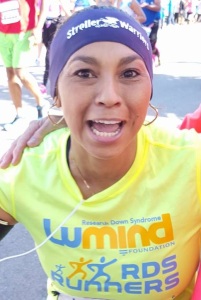
 “I joined RDS Runners, now
“I joined RDS Runners, now  We are so excited to be hosting our very first awards gala – The Sky’s the Limit – in Seattle on May 2, 2015.
We are so excited to be hosting our very first awards gala – The Sky’s the Limit – in Seattle on May 2, 2015.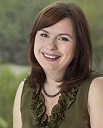 Jamie Edgin, PhD, is an Assistant Professor in the Department of Psychology and the Sonoran UCEDD at the University of Arizona. Her research centers on studies of sleep and learning in Down syndrome, and she has been instrumental in devising new methods to measure cognition in those with Ds. Dr. Edgin serves on a number of community boards, including her service on the State of Arizona Developmental Disabilities Planning Council.
Jamie Edgin, PhD, is an Assistant Professor in the Department of Psychology and the Sonoran UCEDD at the University of Arizona. Her research centers on studies of sleep and learning in Down syndrome, and she has been instrumental in devising new methods to measure cognition in those with Ds. Dr. Edgin serves on a number of community boards, including her service on the State of Arizona Developmental Disabilities Planning Council.
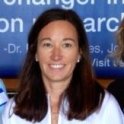
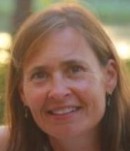


 The core of the LuMind Foundation’s successful research program is our Scientific Advisory Board (SAB), comprised of the brightest minds in research across disciplines and from around the world. Lead by our Chief Scientific Officer, Dr. Michael Harpold, the SAB met in person in mid-February to guide the organization’s mission to fund the most promising lines of discovery.
The core of the LuMind Foundation’s successful research program is our Scientific Advisory Board (SAB), comprised of the brightest minds in research across disciplines and from around the world. Lead by our Chief Scientific Officer, Dr. Michael Harpold, the SAB met in person in mid-February to guide the organization’s mission to fund the most promising lines of discovery. As a senior vice president with Lexington Insurance Company (part of powerhouse firm AIG), Debbie Morris knows a good venture can pay dividends. As one of our newest board members, Debbie sees cognition research, long overlooked and well underfunded by the government, as one of the most worthwhile investments for people with Down syndrome, one with the power to positively ripple beyond the Ds community.
As a senior vice president with Lexington Insurance Company (part of powerhouse firm AIG), Debbie Morris knows a good venture can pay dividends. As one of our newest board members, Debbie sees cognition research, long overlooked and well underfunded by the government, as one of the most worthwhile investments for people with Down syndrome, one with the power to positively ripple beyond the Ds community.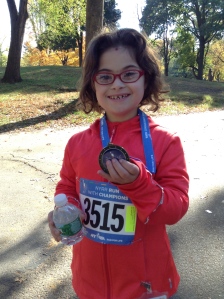




 We are so fortunate! Our founders had a vision ten years ago when they started LuMind Foundation. They saw the possibilities that would be created if cognition was increased by 15% in people with Down syndrome.
We are so fortunate! Our founders had a vision ten years ago when they started LuMind Foundation. They saw the possibilities that would be created if cognition was increased by 15% in people with Down syndrome.